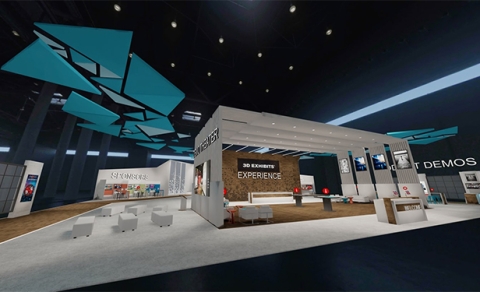5 Ways Exhibitors Can Get More Out of Virtual and Hybrid Events

Exhibitors have, in general, struggled to adapt to the virtual world of events. Accustomed to handshakes and face-to-face encounters on a trade showfloor, they have found little in the way of an equivalent online. While their ROI has not matched expectations thus far, it doesn’t mean that always has to be the case.
Yes, in-person events are coming back — at a faster pace than we perhaps expected — but remote attendees will be part of the equation, perhaps forever. New data collected from Swapcard offers clues as to how exhibitors can make the most of virtual and hybrid experiences as the events industry yet again adapts.
Engage with Attendees Early
There is no such thing as a false start during virtual events. As soon as the platform opens, seek out potential buyers and leads. Swapcard’s study, based of 461 virtual events between April and December 2020 that attracted 51,843 total exhibitors and 1,608,060 total attendees, found that “the pre-event period is the golden moment for closing business.”
- 95% of leads are generated in the pre-event period during a 1-day long virtual trade show
- Nearly 80% of leads are generated during the build-up to the virtual event.
- A little more than 60% of the lead generation happens prior to a three-day virtual event.
Don’t Miss Your Chance
In an alarming stat, Swapcard found exhibitors lose out on just under 42% of business because they fail to respond to messages or requests on the virtual platform. At conferences, this is the case about 40% of the time while the number spikes to 44.25% at trade shows. While exhibitors need to stay alert, the onus is on the planners as well. “Organizers have the responsibility to clearly communicate with exhibitors the need to be fully engaged and alert on the platform,” noted Swapcard.
Sponsor the Content
Networking takes a dramatic backseat to content virtually, Swapcard found. Attendees spend 80% of their time during trade shows watching sessions and 89% on the content during conferences. It is not surprising then that sponsored sessions proved to be the most profitable investment during shows. Forty percent of leads were generated during sponsored trade show sessions, regardless of length. Remarkably, It gets nuanced with conferences:
- During a 1-day virtual conference, more than 40% of leads came in through watching a sponsored session.
- For two-day events, half the leads (50%) were a result of a sponsored session.
- At four-day conferences, as much as 60% leads were from sponsored sessions.
“Speaking at a sponsored session also gives exhibitors a human aspect by giving a face to the brand, and it positions them as experts on a particular topic, making them more credible to attendees,” the study noted.
Make the Booth Splashy
An exhibitor wouldn’t skimp with a booth at CES, so they shouldn’t do it virtually either. Swapcard encourages uploading photos, videos, livestreaming, logos, documents and more to spruce up the booth. Be careful, though, as welcoming is good but salesy remains a deterrent. And returning to our third item, it’s worth noting that sponsors at a virtual trade show had an average of 2.1 times more bookmarks on their booth than ordinary exhibitors.
Stay Past the End
Just like “Avengers” movies reward viewers with bonus scenes during the credits, there is much benefit for exhibitors to stay engaged after the show. “Inbound messages and requests from attendees to exhibitors peak after a live trade show,” observed Swapcard, with 23% of the period after a trade show spent networking. Most inbound requests are sent to exhibitors after an event, so keep checking that inbox.
Photo Credit: 3D Exhibits
Don’t miss any event-related news: Sign up for our weekly e-newsletter HERE and engage with us on Twitter, Facebook, LinkedIn and Instagram!


Add new comment